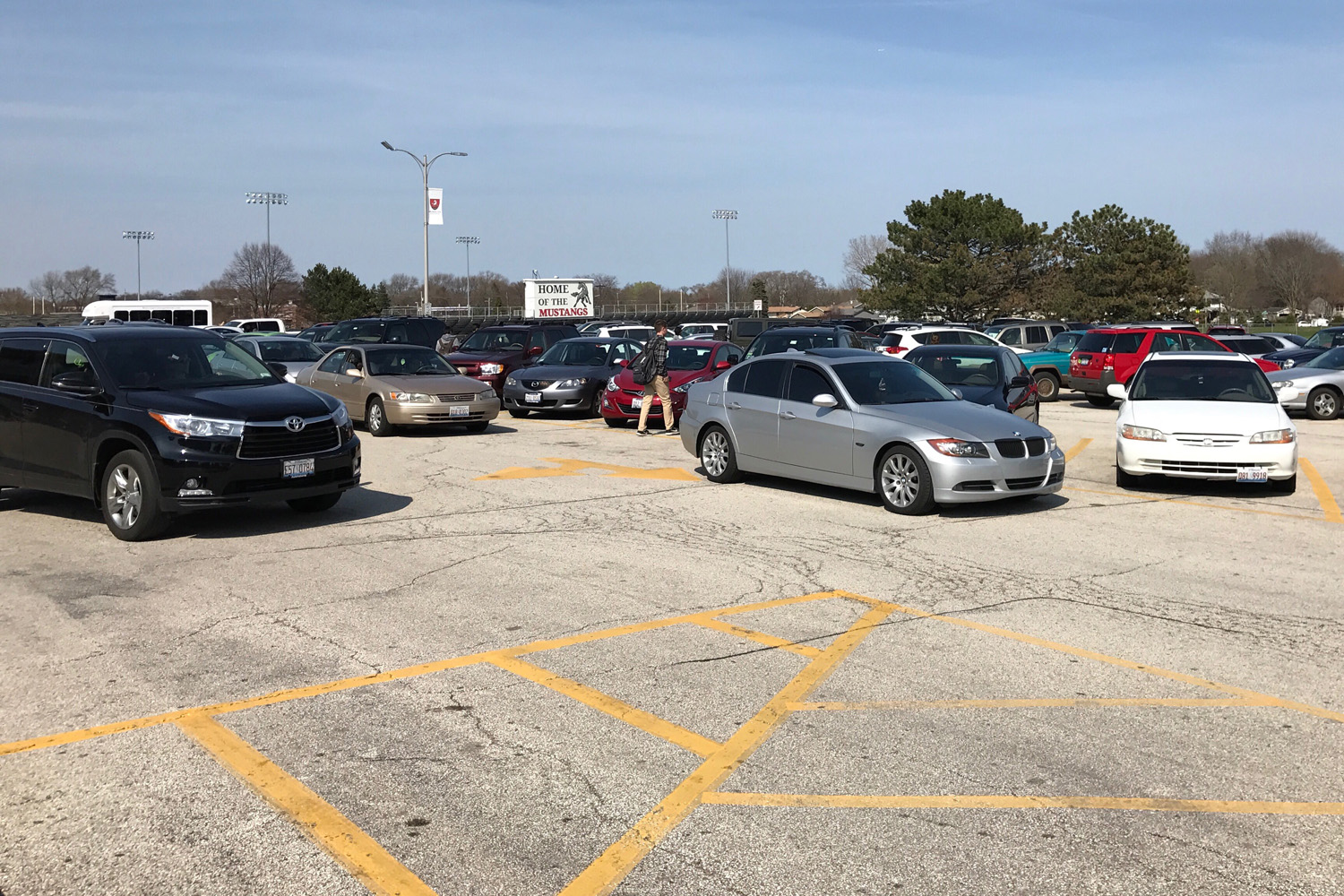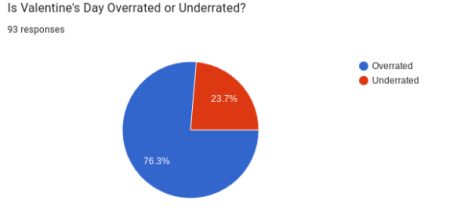Parking Lot Panic: Daily Student Transportation Struggles
May 9, 2017
Almost every upperclassmen at MHS has a story about the parking lot, and a majority of them aren’t pleasant.
Whether it’s a stickered car, a minor collision or a more consequential encounter at the hands of other drivers, traversing the MHS parking lot can be a harrowing experience.
The most commonly shared experience is the illegal parking repercussions.
Recently, MHS changed its parking pass selection for juniors and seniors. Before 2016, upperclassmen had to line up at a certain time and wait until it was their turn to receive their parking passes for the term or year.
Before the 2015-2016 school year, MHS changed its policy to what is now called the lottery selection. Through the lottery, the school claims to make it easier for all upperclassmen to get their parking passes and a more equal chance for everyone to enter the lottery.
In a Google form, students enter their ID numbers and grade before a certain deadline. If they are not in the Google form by a certain date before the school year starts, they will not be eligible for either a full year or Term 1 pass.
Four different lottery chances allow students to either purchase a full-year parking pass, which costs $200, or a one-term parking pass, which costs $75.
Getting a full-year parking pass through the lottery system is usually simple, but when entering the lottery for non-full year passes, students question the process.
Usually students have to get parking passes for certain terms if they don’t get their licenses by the time the first term passes are distributed. This policy causes frustration among many juniors.
Junior Terri Doby, whose birthday is early October, has re-entered the lottery twice now for terms two and three yet has had no luck in getting the pass.
“It’s frustrating that I have entered multiple times. The pass is necessary for me to have,” said Doby, “But each time, I have yet to get picked.”
Students, like Doby, get irritated when they see other students enter the lottery once but win a pass.
Lindsay Dickens, junior, also entered the lottery three times and was getting annoyed when other students who only entered once were selected.
“The school doesn’t realize that these passes are vital to the students,” said Dickens. “Without the parking pass, I couldn’t get to any of my extracurricular activities.”
The lottery process is the easiest way for the school to get a sense of who wants the passes, but they must make sure that students who need these passes get them. A solution to this, which has been implemented in the past, is VIP student parking.
Head of Security Cathy Schmidt seeks to bring back this opportunity for students to be awarded better parking for good behavior. Schmidt mentioned adding horseshoe icons to certain parking spots as an award for the winners of “Student of the Week”.
There are no concrete plans for this solution; however, it would be beneficial to reward students for doing good deeds.
Next year students will have the same parking pass process with the lottery, but they will need to enter it this upcoming May; this way, students will know whether they have a parking pass by the beginning of the summer. The options for the upcoming year are either semester-long passes or a full-year pass. It is highly recommended that students purchase a full-year parking pass in order to ensure the ability to park.
For students lucky enough to receive parking passes, they only face stickers for parking illegally in lined spaces not designated for parking, which is understandable. Yet, for those who still park at MHS without passes, they run the risk of getting a sticker warning and potentially having their car towed.
Steve Cone, MHS security guard, believes that stickering illegal parkers is an effective way to keep our parking lot safe.
“I do think [stickering cars] is the most effective because people do park without permits,” Cone said. “[Students without permits parking here] is not fair to people with permits.”
Because students pay money to be able to park in either of the two parking lots available, it is frustrating to see people parking without permits.
Cone also offered some potential resolutions to help improve the parking lot.
“It’d be nice if it could be expanded, maybe including the old swimming pool area for additional spots; however, it’d cost a lot. The baseball field being so close doesn’t give us a lot of space to work with,” Cone said, also agreeing with the idea to bring back VIP parking spots.
While the parking process is a more predictable issue, one risk that students parking at MHS in the spring may face is rogue baseballs.
Spring is coming, which means baseball is upon us. For some, it is the greatest time of the year with the smell of freshly cut grass, mouth-watering hotdogs cooking and the sound of fans cheering for the team they love. For others, it is the most dreaded time of the year because the possibility of a baseball cracking a windshield skyrockets.
Normally, the people who get a cracked windshield automatically blame the coaches and players involved in the incident. However, is it always the fault of the players or coaches? Parking along the baselines is a choice made by the driver.
When parking along the baselines, it is almost bound to happen. With the amount of baseballs that are hit on the field and in the cages everyday around the clock, it’s only luck if a windshield doesn’t fall victim to a foul ball or a ball that finds a hole in the batting cage nets.
Therefore, students should stop relying on luck and maybe get to school a little earlier and park somewhere closer to the school. An option for protecting windshields is to protect it with wood or rubber mats to lessen the impact.
But after all this, isn’t broken windshields a part of the game? It has happened for years on end and has never ceased to happen when baseball is involved.
Even in the major leagues, there are big leaguers who hit moonshots that end up going out of the stadium and nailing a windshield in the backlot. A perfect example happened last year when Kyle Schwarber of the Chicago Cubs hit an out-of-the-park homerun in batting practice, and it soared out of the stadium and hit the windshield of a car and cracked it completely.
However, this person didn’t resent the fact that he had to replace his windshield; he embraced it because his windshield was a part of history as the Cubs went on to win its first World Series in 108 years, and his windshield was a part of that at the very beginning.
Therefore, if it does happen, don’t resent it; embrace it. Not only was the owner of the car a victim of a foul ball used by the MHS baseball team, but it is victim of a foul ball that has a history of manufacturing winning teams, moving far in the state playoffs and always respecting the school and the people in it.
That windshield could become part of history, though the owner may not know it at first.
However, student drivers parking at MHS are not the only ones taking risks.
Any underclassman without the privilege of a bus stop near home knows the annoyance of traversing the pickup and drop off line during the rush hours at the start and the end of the school day.
The line often stretches through the ‘L’-shaped lot and out onto Hawley Street, forcing the traffic cop into action as the backup causes jams at the intersection of Hawley and Midlothian. Often, after school, that officer does not stay for more than 15 minutes. Even more often, the officer does not direct traffic after school on early dismissal or half days.
Once the front pickup line outside of the main entrance is reached, the single file line diverges into two or three lanes with physically no room for error if cars need adjusting.
Besides driving at a snail’s pace and trying to dodge students cutting through traffic without looking, the process of reforming a single file line to exit the parking lot is tedious at best.
The main complaint is the safety of students and their parents in the MHS lots. This key issue came to light in January when a fire alarm went off at the end of the school day. It was nearly impossible to get firetrucks to the fire lanes at the main entrance due to the enormous backup of cars. If this incident was more than just smoke setting off the alarms, the inability for fire engines to reach the source of the fire due to excessive congestion would become more than just a complaint; it could turn into more severe consequences.
Head of Security Cathy Schmidt stressed the need to keep fire lanes open, saying that kids [and parents] parking in these lanes cause a mess.
An easy fix would just be a reminder of common courtesy, a letter home to parents and students reminding them to be safe and orderly when in MHS parking lots to avoid any accidents resulting from risky or dangerous driving.
The humanitarian aspect of the parking lot is an easy enough fix, yet the remaining considerations go to the condition of the physical parking lot itself.
The potholes in the MHS parking lot have been notoriously associated with driving to school for years. Not only is there just one large pothole but several that are always very near each other.
“Patching potholes is temporary; [it’s] not a waste of money, but [it’s] not a permanent fix,” said Director of Facilities and Maintenance Kevin Quinn.
Potholes cause problems for cars and make it difficult to drive through the parking lot.
“I have a first-hand experience with this, due to the fact that the tires on my car slowly became misaligned throughout the year. I had to pay around $90 to have the alignment of my tires fixed, which is said to be due to potholes and train tracks,” said Delaney Appelhans, senior and editor for the Mustang. “Although it cannot be proven that MHS’s potholes are the sole reason for the misalignment, it is where I am driving my car most of the time.”

